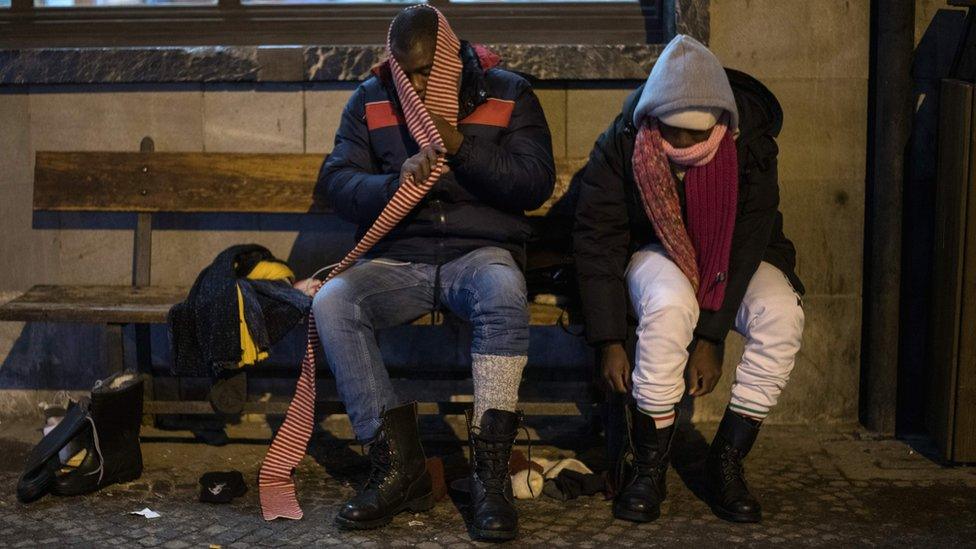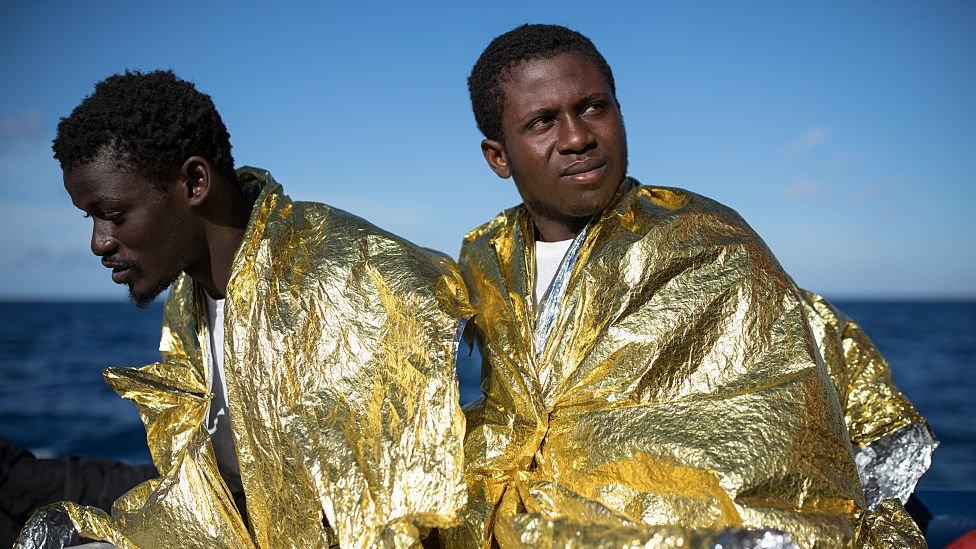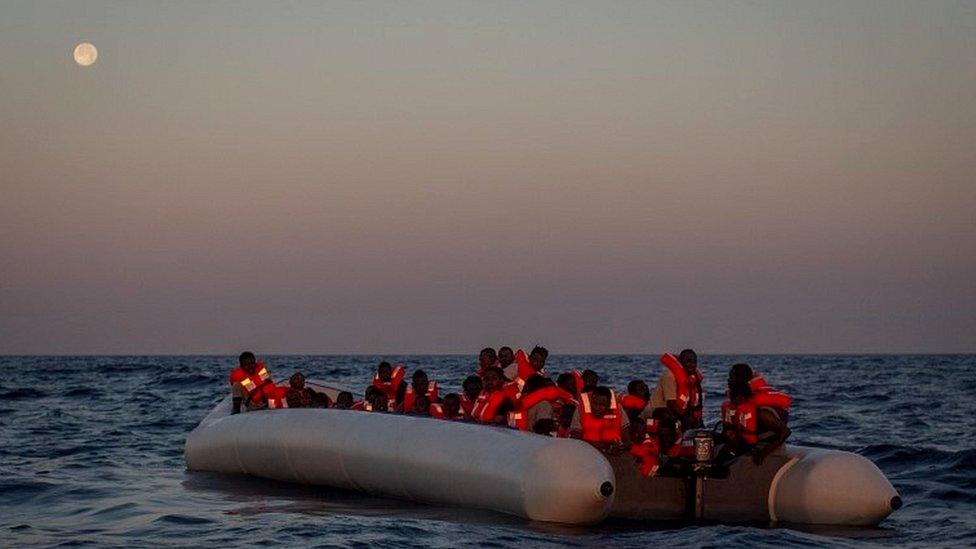French armed officers spark Italy migrant row
- Published

Migrants from Guinea don winter clothes donated by a charity in Bardonecchia
Armed French customs officers have provoked widespread anger by entering a migrant clinic at a railway station over the border in Italy.
Five officers forced one individual to undergo a urine test at the premises west of the city of Turin on Friday evening, Italian reports say.
The facility is located about 1km (0.6 miles) inside the Italian border.
Political figures in Italy, which has received over 600,000 migrants in the last four years, condemned the move.
The French ambassador, Christian Masset, was called into the Italian foreign ministry in Rome on Saturday to explain what had happened.
"French border agents entered - armed - the clinic run in Bardonecchia, forcing a migrant to a urine test, external and intimidating our doctor and the mediators and lawyers," the medical organisation which operates a clinic at the premises, Rainbow for Africa, said.
Allow X content?
This article contains content provided by X. We ask for your permission before anything is loaded, as they may be using cookies and other technologies. You may want to read X’s cookie policy, external and privacy policy, external before accepting. To view this content choose ‘accept and continue’.
The organisation said the actions of the French officers "seriously interfered" with the work of non-governmental organisations (NGOs) in Italian institutions.
It added that the French border was becoming "increasingly militarised" and called for a change in France's strict policy in rejecting migrants.
However, the French government responded by saying the officials had asked for permission to enter the centre, external at the station in the Italian ski resort and were allowed in.
It said that a team of French customs officers on board a train travelling into Italy suspected a Nigerian train passenger with Italian residency was carrying drugs.
French customs officials waited for the passenger to alight from the train and were allowed to use the station at Bardonecchia to obtain a urine sample under a bi-national agreement, it added, insisting that the officers had followed procedure.
The test results came back negative.
Bardonecchia mayor Francesco Avato said he was "very upset" by the news, adding that the French officers "had no right" to go into the property.
Former Italian Prime Minister Enrico Letta said the incident was "yet another mistake on the issue of migrants".
An MP with the far-right Brothers of Italy, Augusta Montaruli, said the behaviour of the French officers at Bardonecchia was "very serious".
"This is an unprecedented lack of respect towards Italy," she said. "We are not Macron's toilet," she added, suggesting that the French president was treating his neighbour with contempt.
French media suggest that the country's customs officers frequently return migrants to the centre in Bardonecchia if they are found attempting to enter France.
Bardonecchia is the first stop in Italy on the high-speed rail route from Paris to Milan.
Migrants who have crossed the Mediterranean and arrived in Italy sometimes try to reach France by crossing the Italian Alps despite the snow, bad weather conditions and terrain.

A note on terminology: The BBC uses the term migrant to refer to all people on the move who have yet to complete the legal process of claiming asylum. This group includes people fleeing war-torn countries such as Syria, who are likely to be granted refugee status, as well as people who are seeking jobs and better lives, who governments are likely to rule are economic migrants.
- Published29 November 2016

- Published28 June 2017
